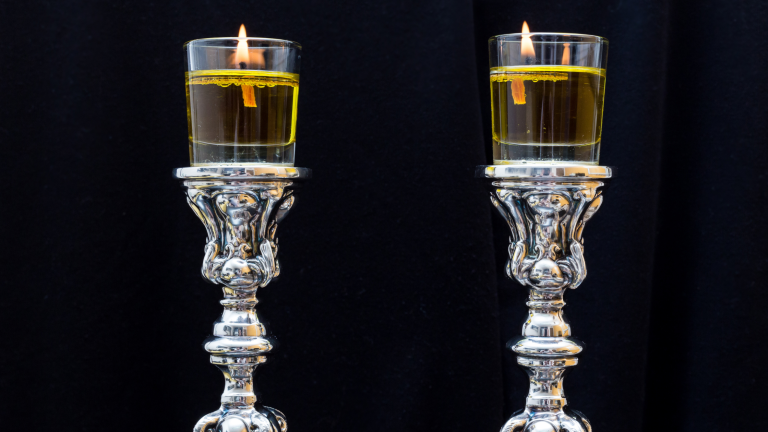The Torah mentions that one should refrain from doing any melachah (work) on the day of Shabbat. The word melachah refers to any creative activity and is not limited to difficult physical activity. By relinquishing all constructive, creative work on Shabbat, we acknowledge that G-d is the true and ultimate Master of the world, and we humans have limited creative abilities.
The only two forbidden acts that the Torah specifies are kindling a fire (which means no electricity or cooking on Shabbat) and carrying in the public domain. Our Sages have explained that melachah refers to any activity that replicates or resembles the work that was done in preparation for building the Mishkan (the temporary Sanctuary) in the desert. Altogether, this makes up the 39 melachas (categories of forbidden acts on Shabbat).
The 39 melachas are grouped into different categories for the different activities that the Jews engaged in preparation for building the Mishkan. The first group of 11 melachas is based on the process of making bread, from plowing and sowing the land to kneading and baking. The next 13 melachas are the method of producing garments, from shearing and dying the wool to tearing thread. The third set of melachas is based on the process of using parchment to write, from trapping an animal to writing and erasing. The final set of melachas involves other creative activities such as building and destroying, burning and extinguishing, finishing a product and transporting objects in the public domain.
These are all called ‘av melachas’- the ‘father’ laws. Under each of these laws, there are many ‘toladot melachas’– the ‘children’ laws, which are similar to the av melachah and, therefore, equally forbidden. Then, there are the laws of muktzeh that were enacted by our Sages to further protect the sanctity of the day. Muktzeh refers to the prohibition of moving or handling objects on Shabbat. The idea behind the laws of muktzeh is that one should not come close to actually performing the forbidden acts. For example, writing is forbidden on Shabbat, so touching a pen or any other writing instrument is muktzeh. Read more about muktzeh here.
How to prepare for Shabbat:
Since many of the basic day-to-day activities are forbidden on Shabbat, there has to be some preparation in advance so that you can enjoy the day fully.
PLEASE NOTE: These methods of keeping food warm from the start of Shabbat may cause burns or fire if not handled properly. Download our FREE e-book for more awareness and Shabbat safety tips here.
Find more information on how to prepare for Shabbat in advance here.

Donations are always appreciated,
but there are other valuable ways to get involved.


Ezras Nashim is a 501(c)3
Legal name: Chasdei Devorah Inc. DBA Ezras Nashim.
EIN number: 34-2006065
Address: 1716 56th St. Brooklyn, NY 11204
© 2020 Web design by MB Tech Design
Copy by C.S.Teitelbaum
HELP & SUPPORT | PRIVACY POLICY